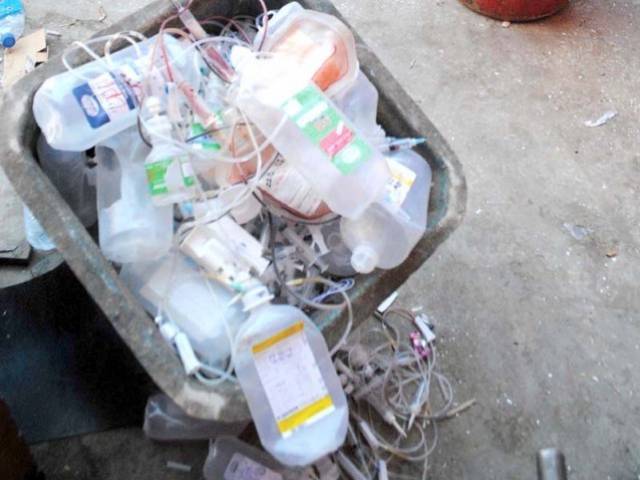
The hazardous waste and their disposal requires special treatment prior to dumping at landfill sites, otherwise, they pose serious threat to environment and human life, health and environment experts say.
The Pakistan Institute of Medical Science (PIMS), one of the largest public sector hospitals is also functioning without incineration plants to dispose of infected and non-infected waste.
Tones of wastes are generated by hospitals on a daily basis and they are being dumped at landfill sites without proper treatment, causing contamination of environment and surrounding areas and contributing to deadly diseases.
While Shifa International Hospital and Khan Research Labs (KRL) Hospital have their own facilities, others in the public and private sectors rely on the National Cleaner Production Centre (NCPC) — a facility in Morgah owned by Attock Refinery — for waste disposal. The centre can only dispose of 200kg of infectious waste per day, while hospitals alone generate about 2,158kg waste per day.
“There are two methods — incineration of waste packages rather than buried in landfills and moist heat treatment, also called autoclave. Medical waste treatment means changing the nature of waste into a non-infected or less-infected condition prior to their disposal,” Shaheed Zulfikar Ali Bhutto Medical University Vice-Chancellor Dr Javed Akram told The Express Tribune.
He said that incineration was one of the oldest methods for treatment of medical waste, but its usage has faced wide objections due to emission of hazardous gases generated by incomplete combustion of compositions such as PVCs. He said that the autoclave method, based on wet disinfection, was a latest technique to dispose of wastes. He said that 11 per cent population of Pakistan including Islamabad was suffering from transmitted diseases such as hepatitis B, C and HIV, and most of these diseases spread through infected needles and instruments.
He said that PIMS engaged the centre for disposal of its waste, which charges Rs24 per kg, costing the hospital Rs6 million per year.
A source at the PIMS said that a new proposal for setting up incinerator plants at a cost of Rs199.762 million has been submitted with the planning commission for formal approval.
Published in The Express Tribune, June 21st, 2016.

















COMMENTS
Comments are moderated and generally will be posted if they are on-topic and not abusive.
For more information, please see our Comments FAQ